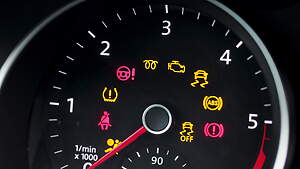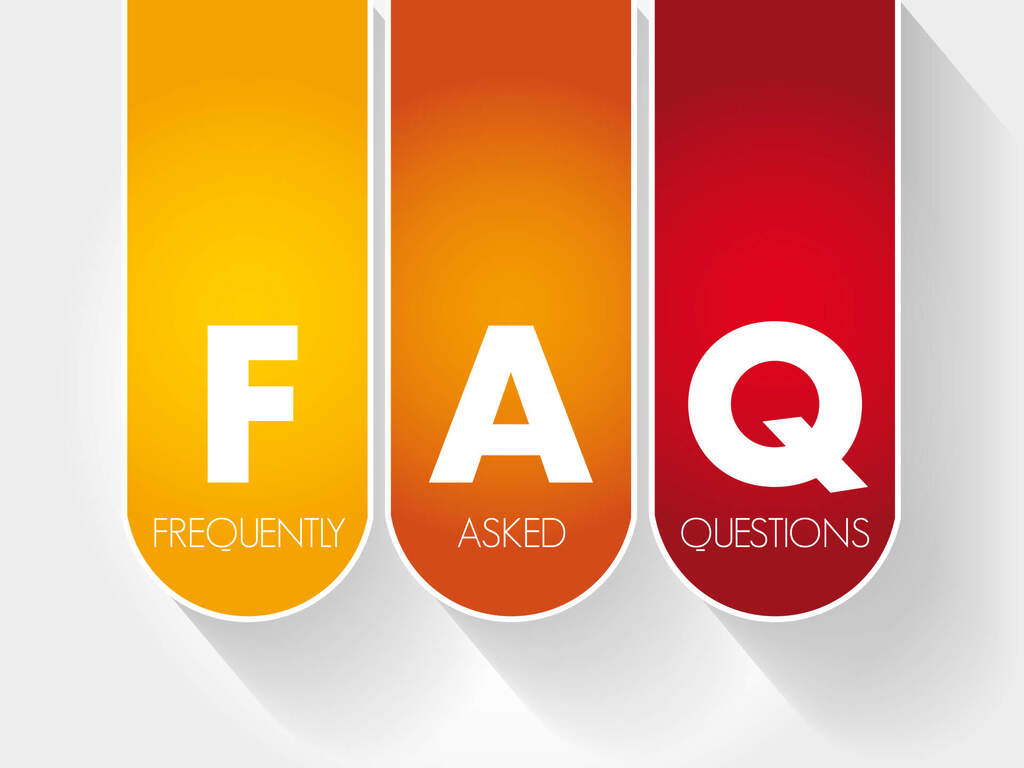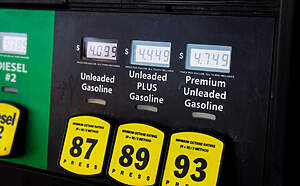Common Questions About Cars
When it comes to cars, there are a lot of things that people don’t think about asking until after purchasing, or they’re just embarrassed to do so. But, a lot of these questions tend to not be common knowledge, especially if you’re a new driver. Here, we’ve answered some of the most common questions about cars.
Difference Between Gasoline And Diesel
Gas and diesel are similar in a lot of ways, but the main thing that separates the two is the way the fuel is ignited and turned into power. In a diesel engine, instead of having a spark plug it has compression that ignites the air and fuel mix which creates a combustion that keeps the pistons in a continued motion. Diesel is also a thicker type of fuel, and it generates more power and distance to the engine.
Gasoline engines run by mixing the fuel with air in the cylinder, then the piston will compress it and the spark plugs will ignite the mixture to keep the engine going. Having a gas engine will give your vehicle a higher performance and you wont be spending as much money on fuel.
It goes without saying, you should never put gas in a diesel engine or diesel in a gas engine. If you do so, you may cause damage to your vehicle that can’t be fixed, or at least not without a big bill. Diesel in a gas engine will clog up your engine due to diesel being thicker, making it inoperable. If you put gas in a diesel vehicle, it can cause Premature Ignition which can damage your vehicle.
Different Types Of Fuel
Basic knowledge of the different fuel types and grades can help you choose the fuel that will improve your vehicle. The more you know about the different fuel types, the less confused you’ll be at the gas station.
Gasoline
This is the most common type of fuel used. Mostly used to power cars, motorcycles, scooters, boats, lawnmowers, and other machinery. Gasoline is a specialized fossil fuel made out of petroleum. It is normally available in three different grades;
- 87 AKI (Lowest Grade)
- 88-90 AKI (Mid Range Grade)
- 90-94 AKI (High Grade)
All grades burn differently in every engine. The lower grade it is, the faster it burns when pressurized. Motors that produce more fuel compression tend to run better on high grade gasoline.
Diesel
Diesel is also made out of petroleum but is made in a different process due to make it burn in a different way than gasoline. A Diesel engine uses a combustion chamber rather than a compression one, so the Diesel fuel has to be able to combust to keep the engine flowing. It is also thicker in consistency compared to Gasoline.
Bio-Diesel
The main components of Bio-Diesel are vegetable oils and animals fats. It can be made by using soybean oil, lard, algae and vegetable oils. Some drivers have even been able to repurpose their cooking oils and turn them into bio-diesel. This is the best fuel for the environment because it is a clean burning renewable fuel made using natural materials.
How Often Should You Change Your Oil
The timeframe of when you need to change your oil varies on what kind of oil your vehicle requires. Older models that use conventional motor oil typically needs changed every 3,000 miles. Whereas the newer models with synthetic / synthetic blends can last from 5,000 to 10,000 miles.
You should always be sure to get your oil changes done routinely. Otherwise, you can cause yourself to have a higher bill because it will damage your engine.
Difference Between All Wheel Drive And 4 Wheel Drive
All wheel drive vehicles are typically meant for everyday, all weather, light off-roading and certain kind of performance driving. Four wheel drive vehicles are mainly used for heavy towing and serious off-roading, which you see more of in vehicles like the Jeep Wrangler. All wheel drive stays on constantly and will automatically decide which wheels need to be given the most power. Four wheel drive has to be activated by the driver for it to turn on, so it’s up to the driver to decide when they need that extra power, which goes to all wheels.
Car Light With Exclamation Point
The “U” shaped symbol with an exclamation point on your dashboard is the low tire pressure warning. Your pressure can be low due to cold weather, dramatic weather change or something that has punctured your tire. Although all of these are an easy fix, if you drive with low tire pressure it can reduce your MPG. It also puts you at risk for damaging your rims and tires. Sometimes your sensors can simply be damaged so it’s always good to get all components checked out.
How To Properly Inflate Your Tires
Filling your tires is an easy process as long as you know the right steps. You first want to figure out how much air your tires require, which can be found in the manual or the sticker that’s in the drivers side door. Once you find that, go to your nearest gas station that has an air dispenser and start by removing your valve caps. Then attach the hose, press down for 10 seconds and check the tire gauge to make sure you don’t over inflate or under inflate the tire.
What Does Check Engine Light Mean
When your check engine light comes on, it means your sensor has noticed an issue with the engine. This doesn’t always mean you have to go to the shop immediately, sometimes it can just be because of a loose gas cap. If you’ve tightened your gas cap and the light continues to stay on, your best bet is to go ahead and take it to your Local Dealer to get it looked at. You don’t want your engine light to stay on for a long period of time. It can make the original problem become worse and affect other things over time.

Common Questions When Buying a Car
When buying a vehicle, whether it be new or used, its always good to have the right information. You don’t want to go into a big purchase like this without being prepared and informed.
Difference Between Leasing And Financing A Car
A loan is when you borrow money from a financial institution to purchase a vehicle. Whereas a lease is when you have a contract and payments to use the vehicle. When you get either, they ask for a collateral in some way. With a car loan, they financial institution you borrow from typically keeps the title until the loan is completely paid back. With a lease, the collateral for that contract is the vehicle itself.
How Much Does A Car Loan Affect Your Credit Score
Your Credit Score is what will tell you how much of a loan you are allowed to get, which in turn determines what kind of vehicle you are able to purchase. You will want to apply for a few different loans from multiple places. You can harm your score by applying at various times. If you have a high credit score, you are more likely to get approved by most financial institutions.
Should I Trade In My Car
If you’re purchasing a vehicle and have no need for your older one, you can save money by trading it in. You should always do research on What Your Car Is Worth so you know you aren’t getting taken advantage of in the dealership. You can look on websites such as KellyBlueBook to help you find the current price of your vehicle.
Why Is A Cars History Important
If the car you’re purchasing is a used vehicle, it’s always a good idea to ask for the History Report on it. You never know how or what the vehicle was being used for or if its been in any major accidents. If you’re going through a dealership, they will most of the time get the history report for you. If you’re buying from a private seller, don’t be afraid to get a history report on your own. It could save you money in the long run, because it’ll tell you if the vehicles worth has gone down.
Should I Get An Extended Warranty
This is a good question to know the answer to. Getting an Extended Warranty is a great option if your factory warranty is going to end but you still plan on using your vehicle frequently. Your factory warranty normally only lasts you from 3 years/36,000 miles or 5 years/60,000. If you know that you want your warranty to last longer than that, an extended warranty is the option.





